Festivals in Hanoi: Discover Top 12 Vibrant Cultural Celebrations
Apart from being a busy city, Hanoi, the capital of Vietnam, is a treasure store of religious and cultural events. Showcasing centuries-old customs, religious activities, and group meetings, these festivals in Hanoi are a great statement of Vietnamese identity. Let MOTOGO Tours explore some of the most vibrant and captivating festivals celebrated in this fascinating city.
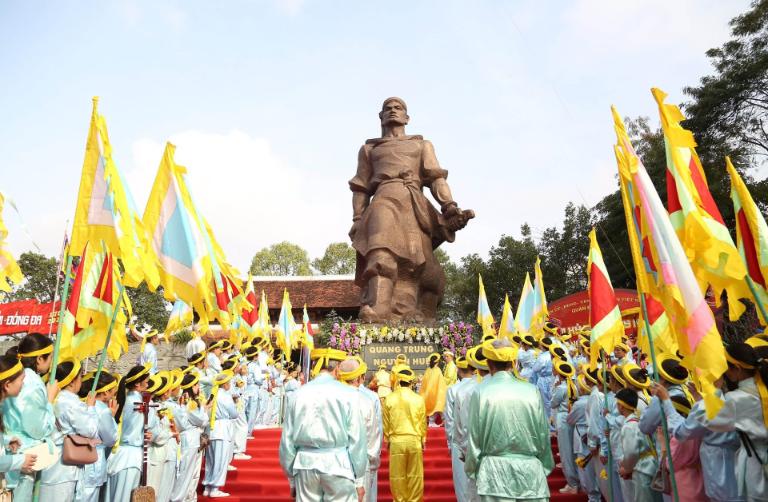
1. Tet Nguyen Dan (Lunar New Year)
Celebrated as the arrival of spring, Tet Nguyen Dan ( Lunar New Year)—also known as just Tet—is among the most significant festivals in Hanoi. Families clean and decorate their homes with peach blossoms and kumquat trees, symbolizing renewal and good fortune. Homes are cleaned, decorations are hung, and traditional meals are made in Hanoi to guarantee good fortune for the next year. The streets are vibrant.
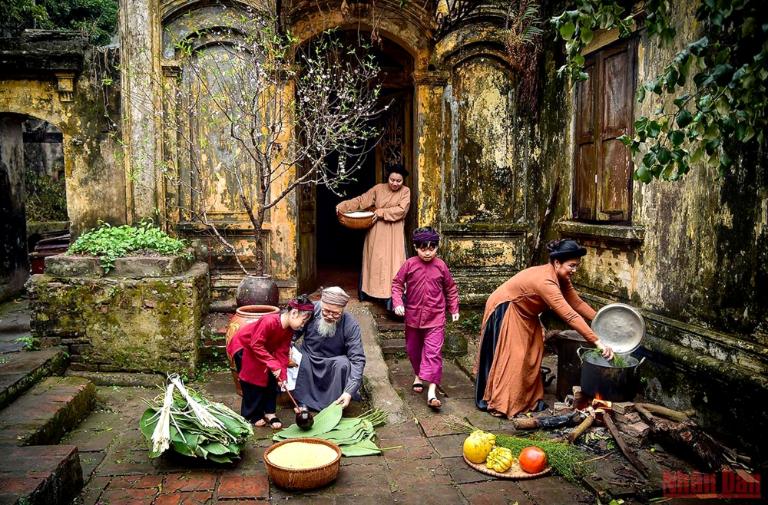
In the days preceding Tet, Hanoi becomes a hive of activity. Peach blossoms and kumquat trees help families clean and ornament their houses to represent good fortune and rebirth. Street markets buzz with people purchasing fruits, flowers, and banh chung—the traditional sticky rice cake. It’s a time of anticipation, as Hanoi gears up for the most awaited celebration of the year.
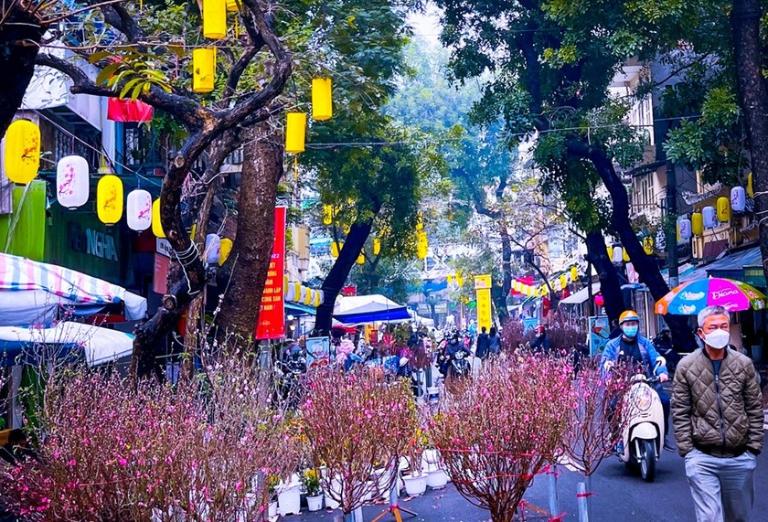
The mood in Hanoi is even more cheerful once Tet starts formally. Lights, flowers, and banners wishing everyone success and happiness abound on the city streets. Families come to pray to their ancestors, trade li xi—red envelopes filled with money—and savor great feasts together. Tet in Hanoi is a sensory feast from firework displays to lion dances.
2. Mid-Autumn Festival (Tet Trung Thu)
Particularly for youngsters, the Mid-Autumn Festival—also known as Tet Trung Thu—is a much-loved festival in Vietnam. It falls on the fifteenth day of the eighth lunar month, during which the moon is most full and brilliant. Though in modern times it has become a celebration of family reunions and fun-filled events, historically it’s a time to thank you for the harvest.
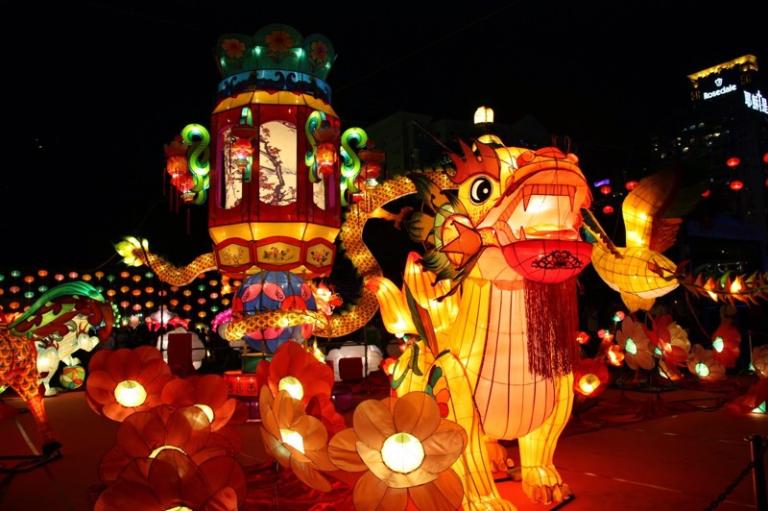
The streets of Hanoi are decked with vibrant lanterns during the Mid-Autumn Festival, and mooncakes—sweet pastries stuffed with a variety of contents—are distributed among friends and family. Children add to the festive attitude by carrying lanterns fashioned like stars, animals, or flowers. The city hosts lantern-making contests and workshops all around, hence the streets of Hanoi become a lovely place during Tet Trung Thu.
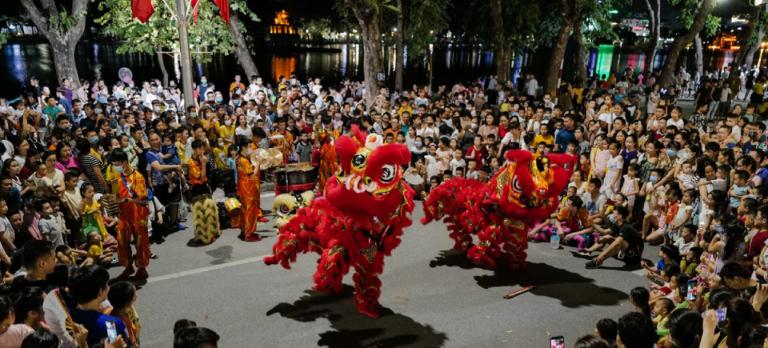
Hoan Kiem Lake takes front stage in Hanoi during the Mid-Autumn celebration. Both residents and visitors find entertainment from lion dances, puppet plays, and cultural events. The vibrant scene and cool autumn air produce an enchanted experience that perfectly embodies the rich cultural legacy of Hanoi.
3. Perfume Pagoda Festival
Of the most important religious festivals in Hanoi, the Perfume Pagoda Festival is usually occurring between January and April. It attracts thousands of pilgrims to the Perfume Pagoda to offer prayers for wealth, peace, and health.
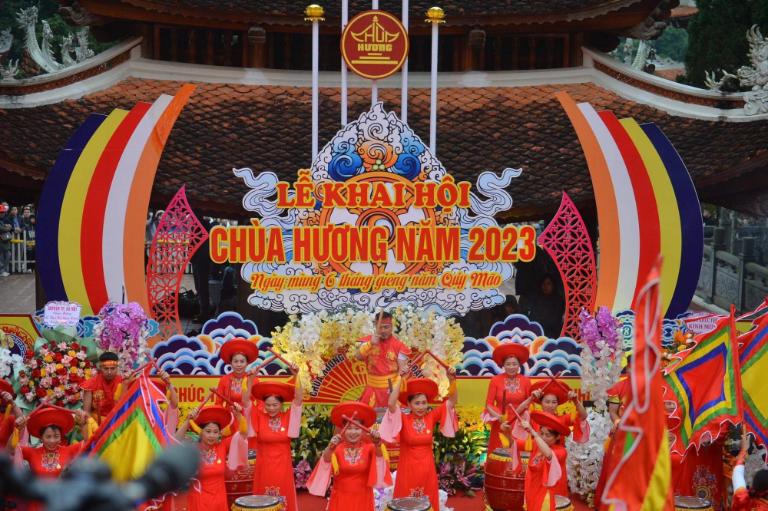
The journey to the Perfume Pagoda begins with a scenic boat ride along the Yen Stream. Surrounded by limestone mountains and gliding across the calm waterways, this trip clearly has great spiritual meaning. Arriving guests hike the slopes to reach the pagodas and caverns, where they pray and engage in ceremonies.
Pilgraders bring fruit, incense, and flowers to serve the gods at the Perfume Pagoda. Apart from a religious trip, the Perfume Pagoda Festival allows visitors to establish inner serenity by interacting with the surroundings. This is an encounter that affects residents as well as tourists.
>>> Explore: Hanoi Liberation Day: Celebrating Vietnam’s Historic Victory
4. Co Loa Festival
Celebrated historically in honor of King An Duong Vuong, the monarch of the old kingdom of Au Lac, is Co Loa Festival. Just south of Hanoi, Co Loa Citadel hosts the event, which honors Vietnam’s rich past by means of traditional ceremonies, games, and performances.
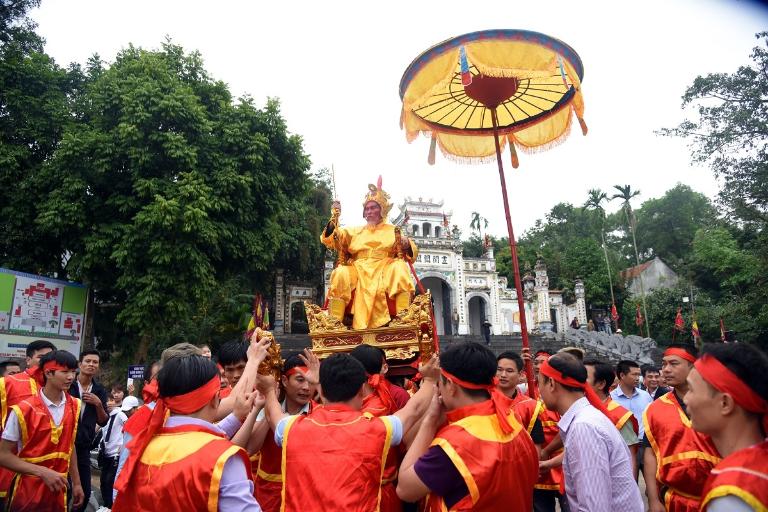
Engaging traditional events including tug of war, wrestling, and cockfighting—among others—the Co Loa Festival is known for its These events provide people a chance to gather and honor their common past and mirror the festive community attitude. This is an interesting event in which history, culture, and entertainment coexist dynamically.
5. Thay Pagoda Festival
The Thay Pagoda Festival honors the revered Buddhist monk Tu Dao Hanh, who is credited with invented Vietnam’s own water puppetry art style. Situated in the picturesque countryside, the event draws both visitors to pay their respects and take in the age-old water puppet presentations.
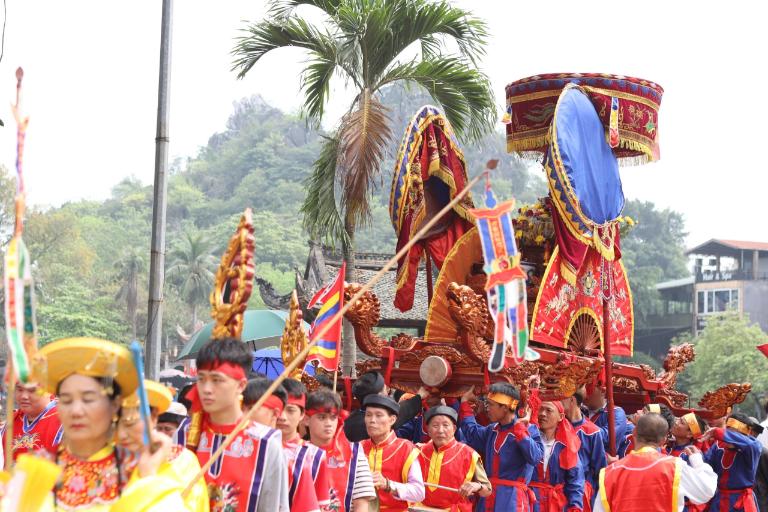
Deeply connected to Thay Pagoda, water puppetry is among Vietnam’s most famous cultural productions. Originating in the rice paddies of northern Vietnam, where people used puppets to entertain and transmit stories, the art form began more than a thousand years ago Water puppet shows nowadays comprise part of the festival, giving it a distinctive cultural aspect.
6. Giong Festival – A Legendary Festival in Hanoi
The Giong Festival stands as one of Hanoi’s most renowned and ancient celebrations, deeply embedded in the city’s cultural fabric. It holds immense historical and spiritual significance, earning the prestigious recognition as an Intangible Cultural Heritage of Humanity by UNESCO.
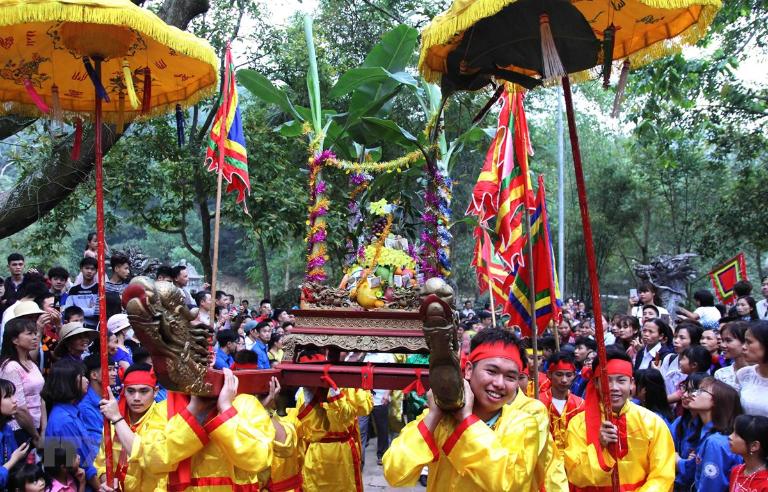
Attending the Giong Festival allows visitors to witness a deeply spiritual and sacred experience. The festival features a series of rituals, including grand processions, the ceremonial bathing of Saint Giong’s statue, and reverent incense offerings. But beyond these sacred ceremonies, visitors can enjoy lively traditional folk games and lose themselves in the enchanting rhythms of ancient Vietnamese music and songs, making this festival a truly immersive cultural experience.
7. Dong Da Festival in Hanoi
Honoring the great Ngoc Hoi – Dong Da victory led by the valiant Emperor Quang Trung, the Dong Da Festival is among Hanoi’s oldest and most treasured customs. Drawing people to mark this significant event in Vietnamese history, this great celebration has been a mainstay of the city’s cultural legacy for more than 200 years.
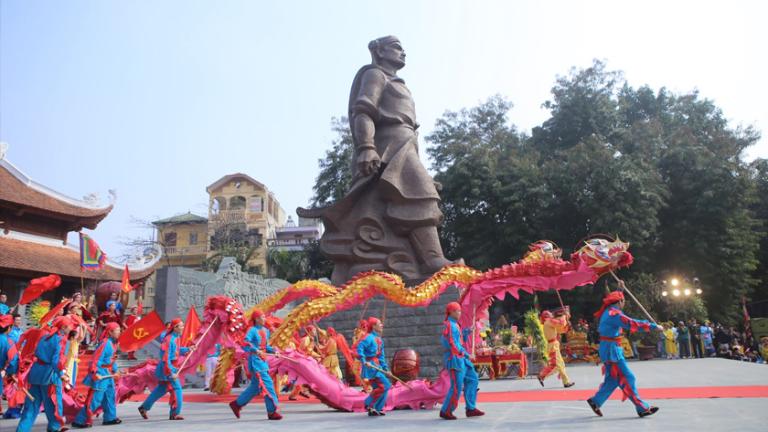
Every year the celebration comes alive with a colourful procession of exquisitely decorated palanquins headed from Khuong Thuong Communal House to the ancient Dong Da Mound. The captivating dragon dances, which envelop the celebration with vitality and enthusiasm, add to its dynamic nature. Visitors are also welcome to participate in exciting traditional games, so reflecting the ancient valor and friendliness.
8. Bat Trang Village Festival
Traveling outside of Hanoi, one cannot miss Bat Trang Potttery Village, a well-known traditional pottery village drawing a lot of both domestic and foreign visitors. Especially during the Lunar New Year, this village gets much more lively with the Bat Trang Village Festival. The celebration honors the age-old craft of pottery and provides an opportunity for neighborhood people to pray for a year of luck and peace.
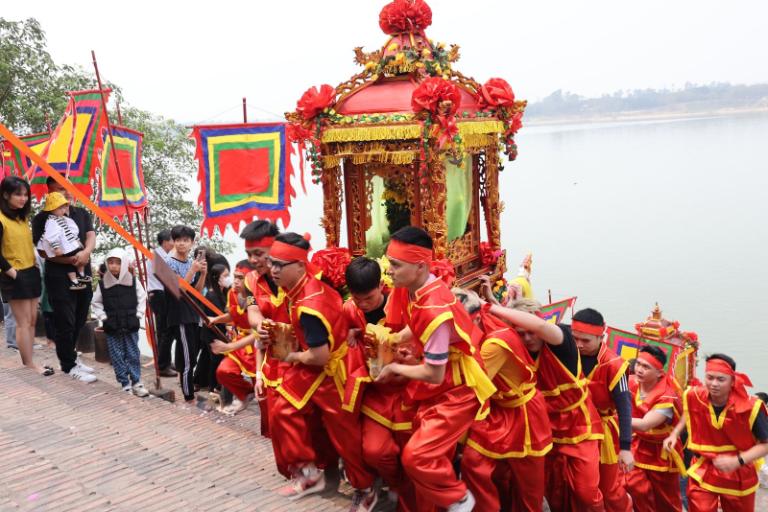
The ceremonial component consists in well planned events like the water procession, cleaning of ancestral tablets, and bringing the ancestral tablets to the common dwelling. Human chess and ceremonial singing are among the most unusual events in the Christmas season. Discovering the pottery village during this energetic New Year celebration will definitely help you to remember your stay in Hanoi!
9. Hai Ba Trung Temple Festival – Me Linh
Surely you have heard of the two brave sisters, Hai Ba Trung, who were instrumental in Vietnam’s history. Though many temples all throughout the nation honor these heroines, the Ha Loi Village, Me Linh temple and celebration have particular meaning. Their early years were spent just here.
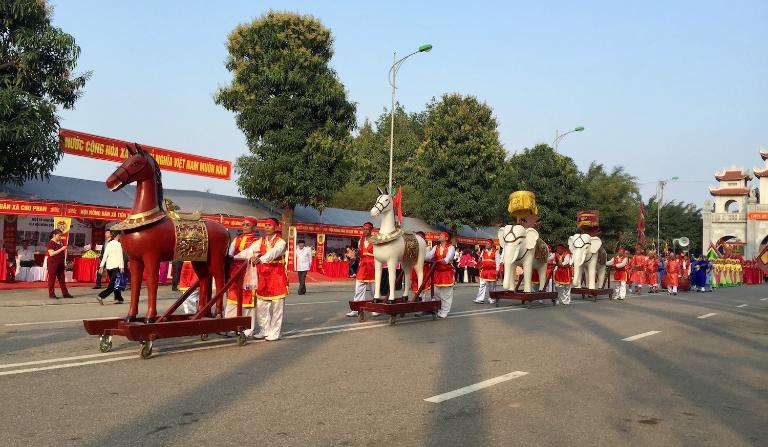
The festival stands out mostly for its ceremonial parade. Trung Trac’s palanquin is brought ahead first, then the army’s march; Trung Nhi’s palanquin takes front next. Apart from the customary folk events and performances, which let residents pay tribute to the sisters’ past triumphs and provide guests a better awareness of the cultural richness of the Hai Ba Trung Temple Festival.
>>> Let’s see more: Cultural Events and Festivals in Hanoi: A Comprehensive Guide
10. Vong La Festival in Hanoi
Visitors to Hanoi have always been mostly drawn to cultural events; the Vong La Festival stands out as a main feature. Quoc Cong Dai Vuong (Duke of the Nation), La Nuong Phu Nhan Dai Vuong (his wife), and their three children—Linh Khong (De Nhat Linh To Dai Vuong, First Reved Spirit), Minh Chieu (De Nhi Linh To Dai Vuong, Second Reved Spirit), and Cung Muc (De Tam Linh To Dai Vuong, Third Reved Spirit)—five deities—known as the “Ngu vi Ton Than” (Five Reved Deities).
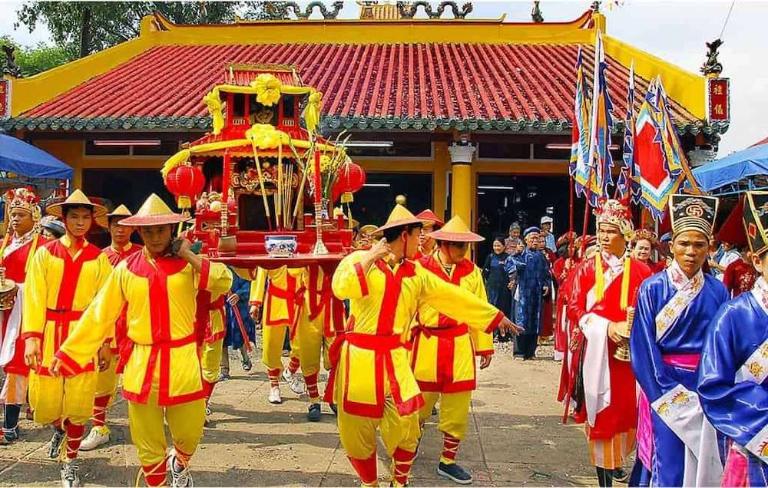
Twice a year, the Vong La Festival marks the first lunar month (January) and the second in the eighth lunar month (August). The celebration offers a range of fascinating events including chess contests, bamboo swings, traditional Quan ho singing, lion dances, and the senh tien folk dance.
11. Le Mat Village Festival
Let’s then discuss the Le Mat Village Festival, one of unusual celebrations held in Hanoi. This occasion allows the people to honor their local deity, Le Mat’s patron saint, Hoang Duc Trung, who helped to establish 13 farming towns in the western section of Thang Long, now Ba Dinh District.
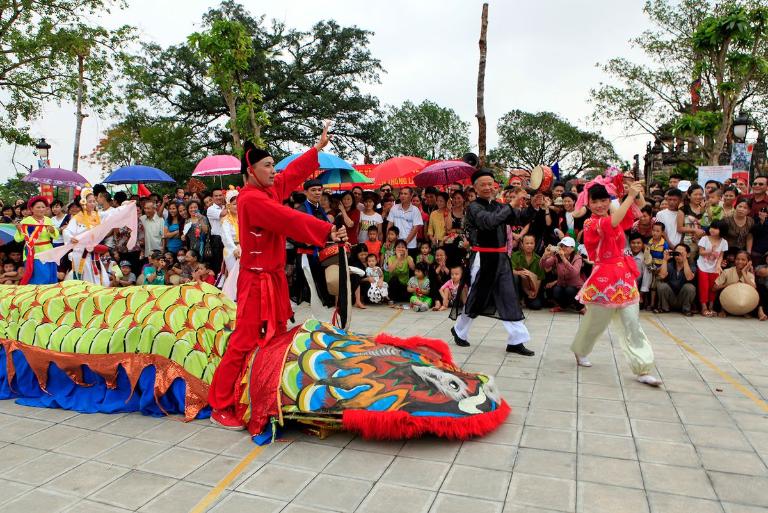
The ritual consists in a water procession around the village well, a carp fish procession to the common house, and the presenting of offerings from the 13 Ba Dinh settlements to the local temple. The creative snake dance of the festival is its high point. Designed from bamboo strips and wrapped in fabric, the snake represents a legendary water serpent vanquished by the Hoang family generations’ will and strength. Apart from this, the celebration attracts particular attention with its cooking contest, which features cuisine prepared from fish, frogs, and snakes among other elements.
12. Tan Vien Son Thanh Festival in Hanoi
Celebrated as an intangible cultural legacy by the Ministry of Culture, Sports, and Tourism, the Tan Vien Son Thanh Festival is a highlight cultural event in Hanoi. Celebrated as one of the “Four Immortals,” Tan Vien, the beloved Mountain Saint, is extensively entwined into Vietnamese mythology. Participants assemble to honor the Mountain Saint, seeking his blessings for a year of excellent weather, great prosperity, and unbounded happiness, in a hypnotic incense-offering ceremony opening the festival. This is a dynamic manifestation of Vietnam’s rich cultural and spiritual past as much as a religious festival.
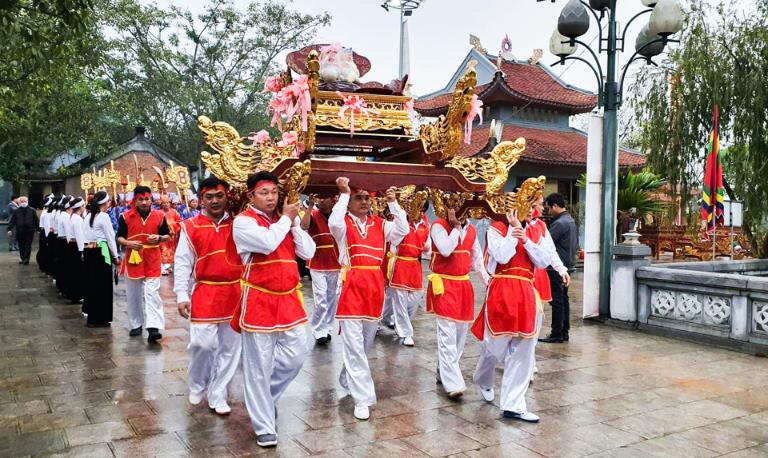
Festivals in Hanoi are a vibrant tapestry of Vietnam’s history, culture, and religious traditions. These festivals not only bring communities together but also preserve Vietnam’s cultural heritage for future generations. As the city continues to evolve, its festivals remain a vital connection to its past, a celebration of its present, and a hope for its future.






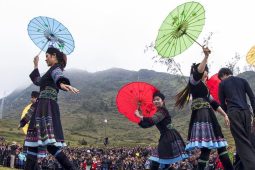
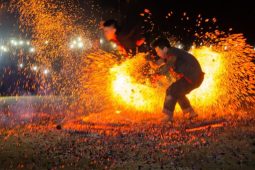
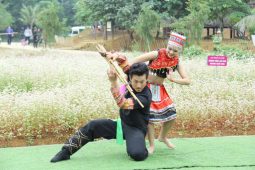
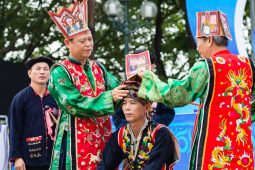
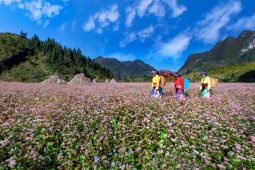
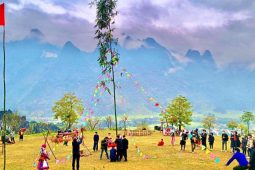
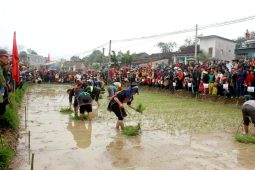
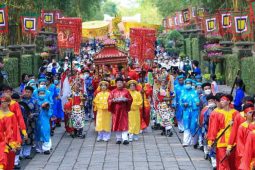
Be the first to comment!